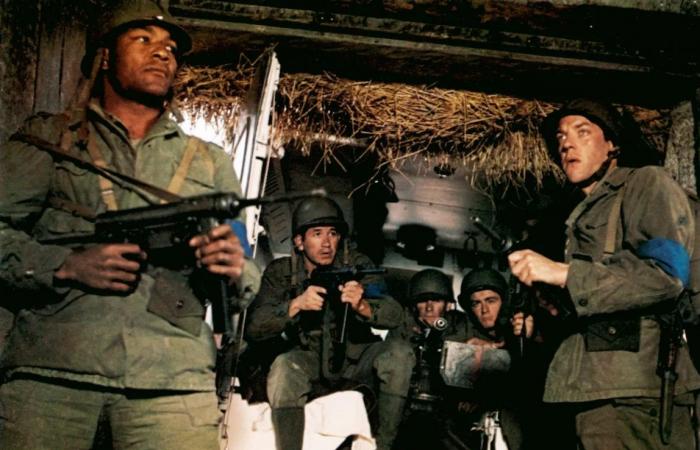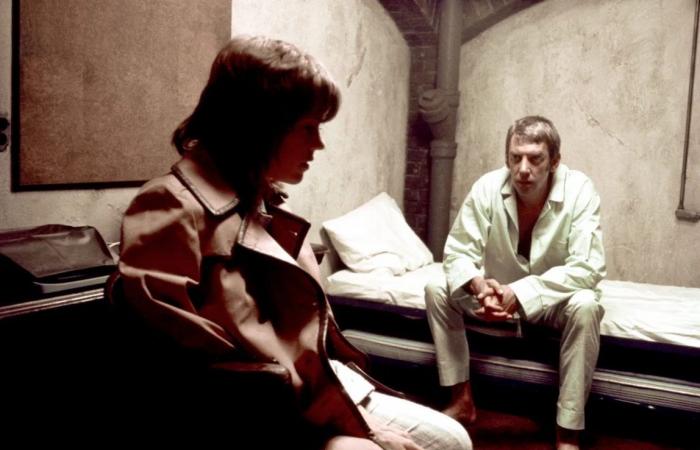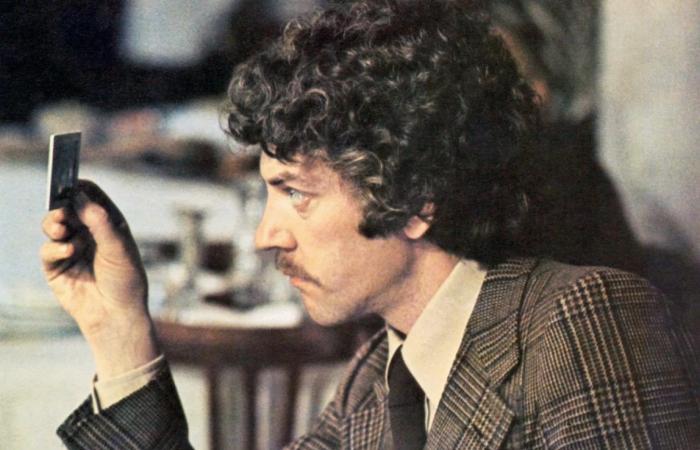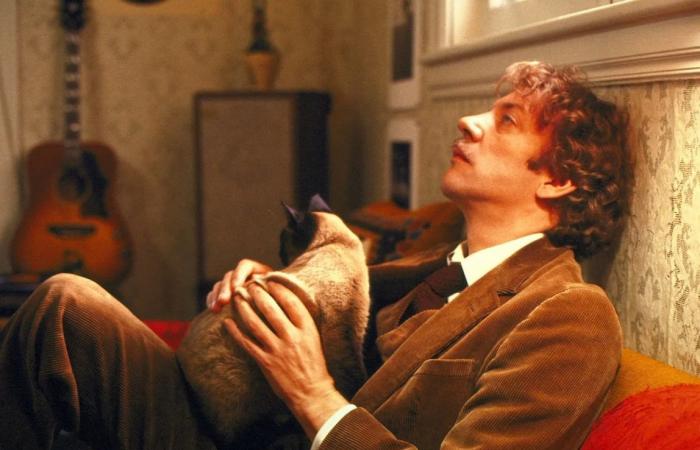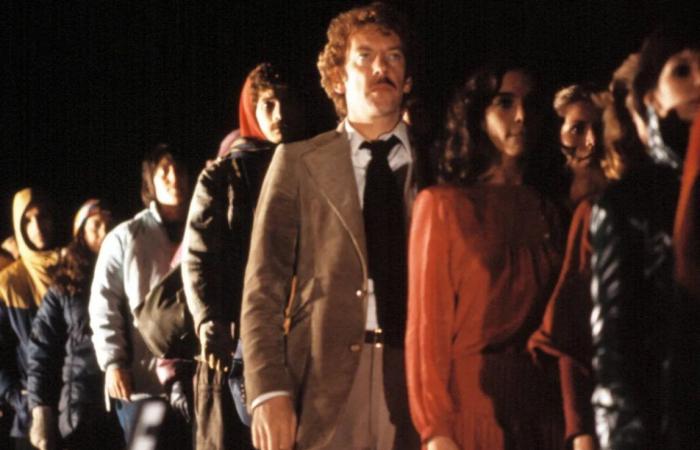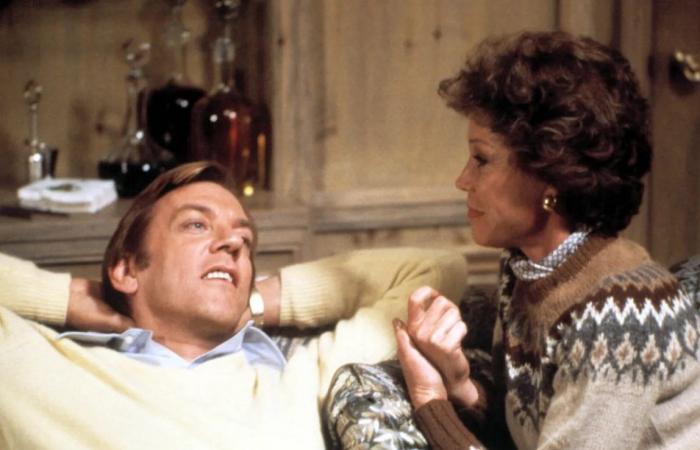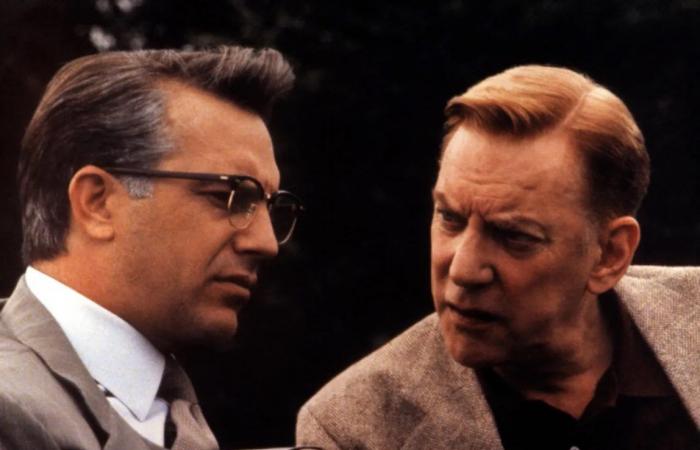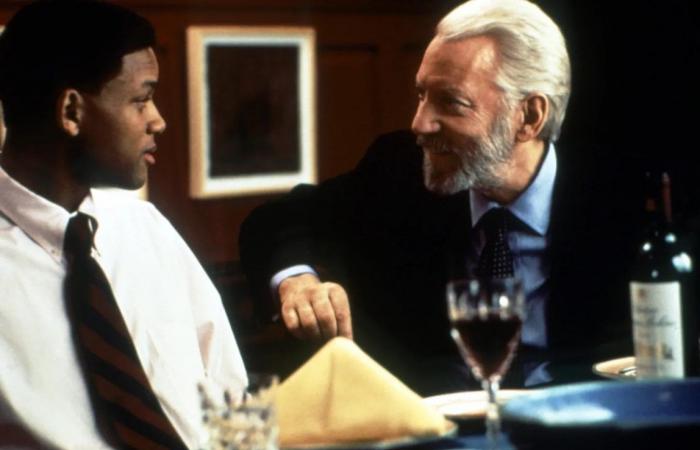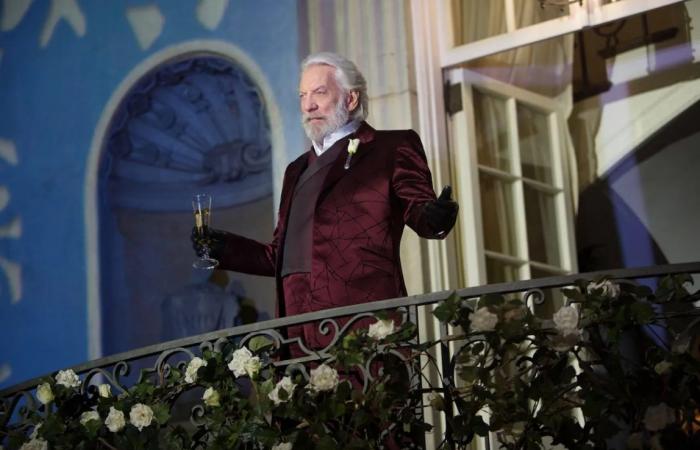Donald Sutherland, who died Thursday at the age of 88, had a very humble outlook on his career. “I just pursued the creative process within myself as vigorously as possible,” he said in 1993. “And I found it very fun, a great pleasure.”
The pleasure was ours: few actors of his generation were so reliable in so many different roles and genres. Nearly every obituary points out that, although Sutherland was awarded an honorary Oscar in 2018, he never received a nomination from the Academy, which is an indictment of how voters have consistently (and shamefully) overlooked the subtle versatility that allowed him to play a myriad of roles. But it’s a fact, even without awards to celebrate it.
In honor of Sutherland, we tried to put together his 10 best performances. Unfortunately this means leaving aside the amazing work you have done in literary adaptations such as Pride and Prejudice and in nuanced sports biopics like Without Limits. So let’s let our 10 picks simply serve as a starting point to celebrate its vital legacy and not let this be the end. Indeed there are many other gems from this great actor, who gave so much to his art by always insisting on doing the simplest and most honest work possible.
The Dirty Dozen
Robert Aldrich
1967
Photo: Everett Collection
Since Sutherland is best known for his dramatic performances, his breakthrough role in Robert Aldrich’s gripping war film is often overlooked. The actor was in his early thirties when he landed the part of the bumbling Vernon Pinkley, one of the ragtag crew of crooks and criminals recruited to fight for Uncle Sam. The sneer Sutherland brings to every scene – especially during a sequence in which he is used to pose as a stern general carrying out inspections – is one of this film’s best features and hints at the spark that would ignite future roles. But, very soon, Sutherland would be even funnier in another war movie.

Photo: 20th Century Fox/Everett Collection
Robert Altman’s first masterpiece is still legendary for the disagreements it had with its stars, Elliott Gould and Donald Sutherland. The two played Trapper John McIntyre and Hawkeye Pierce, respectively, American surgeons trying to stay sane while stitching up wounded bodies during the Korean War. Gould eventually reconnected with Altman, making several films with him, but in Sutherland’s case that feud prevented them from collaborating again (“In hindsight, Donald and I were two snobbish, arrogant actors who really couldn’t grasp the genius of Altman,” Gould later said). Sutherland, however, is terribly caustic as Trapper John’s partner in crime on and off duty, while still cracking jokes with his snide, ironic quips about the stupidity of the military and the senselessness of war. Sutherland once said that Alan Alda, who played him in the television series of the same name, thanked him for giving him a career.
A call girl for Inspector Klute
Alan J. Pakula
1971
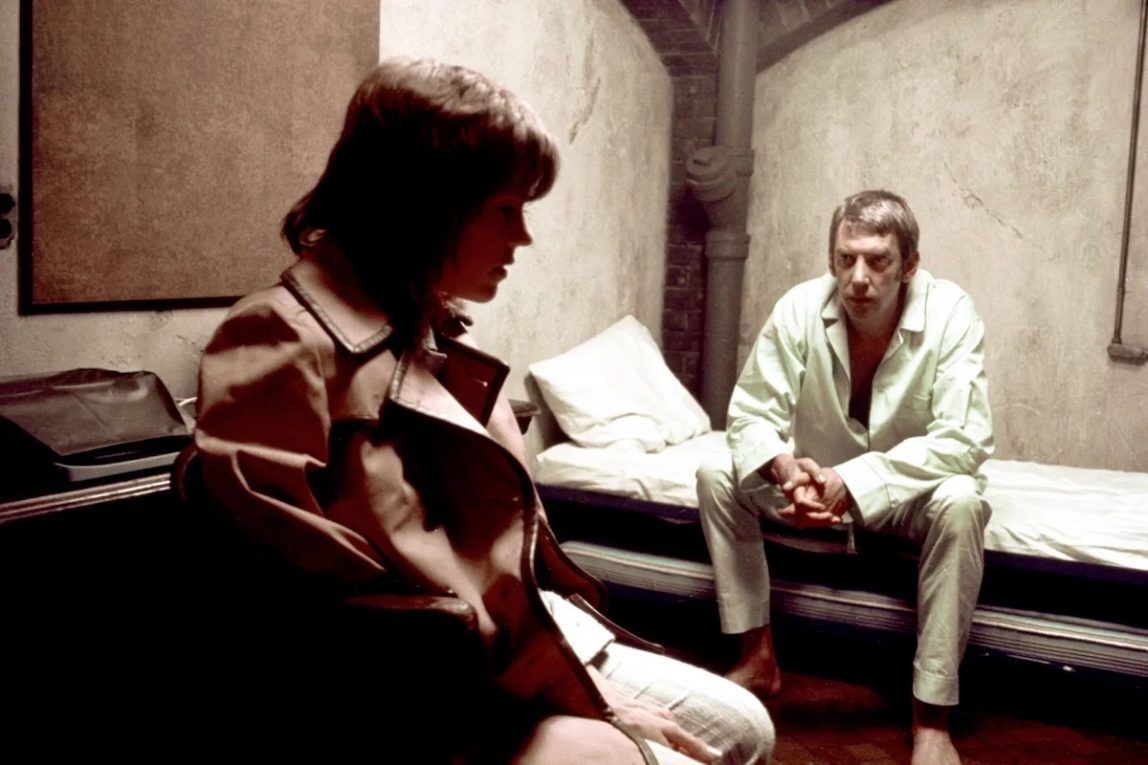
Photo: Everett Collection
Jane Fonda won an Oscar for best leading actress for her portrayal of troubled escort Bree Daniels, but Alan J. Pakula’s thriller is largely a two-person game, chronicling the deepening relationship between Daniels and John Klute, the detective tasked with protecting her from a mysterious serial killer. A call girl for Inspector Klute captures Sutherland at his most steely: characterized by the character’s unfashionable haircut, his investigator is unyielding and focused on work, but will slowly fall in love with this beautiful and turbulent girl. Sutherland made the inspector’s competence and intelligence deeply sexy, greatly impressing Fonda, who wrote in her memoir My Life So Far: “I found him particularly attractive that he was so slender together with that look of a beaten dog, as well as his slightly droopy and very blue eyes. He had something of an old-fashioned gentleman.”
In Venice… a shocking red December
Nicolas Roeg
1973
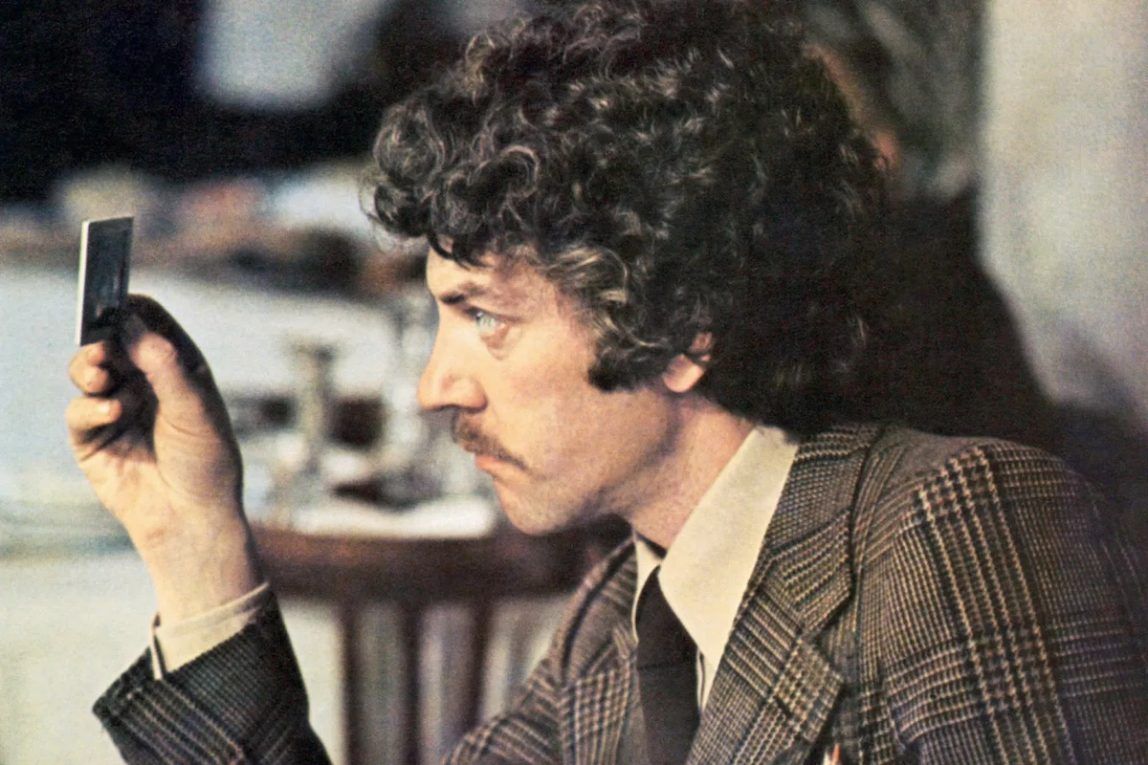
Photo: Everett Collection
What does pain look like? As John Baxter, a husband mourning the accidental drowning of his daughter, Sutherland played that emotion with suffocating obsession, creating one of cinema’s most haunting portraits of loss. This horror thriller shines with its heartbreaking twist, showcasing a deep emotional abyss on the part of his wife Laura (Julie Christie) and a broken soul that will likely never be mended. Sutherland has two very anguished moments that open and close Don’t Look Now (so in the original) and characterize this film of chilling beauty: John’s slow-motion cries of pain as he pulls his dead daughter’s body out of the water and, at the end, his terrified look when he discovers that his little girl will never return more from him and his fate is sealed.
Animal House
John Landis
1978

Photo: Everett Collection
Filmed in a couple of days in the middle of filming the remake ofInvasion of the body snatchers (Terror from outer space), Sutherland’s cameo in this cult college comedy stems from Donald’s relationship with John Landis. The star liked the young man so much that he had been an assistant director in the Warriors (1970) who agreed to play small parts in future Landis films. In Animal House, that meant embodying the world’s coolest English professor, Dave Jennings, who smokes weed, fucks, and admits that, yeah, Milton is pretty boring. Sutherland’s only regret? Not having accepted the offer of 2% of the profits that Landis put on the table, preferring instead a paltry per diem.
Terror from outer space
Philip Kaufman
1978
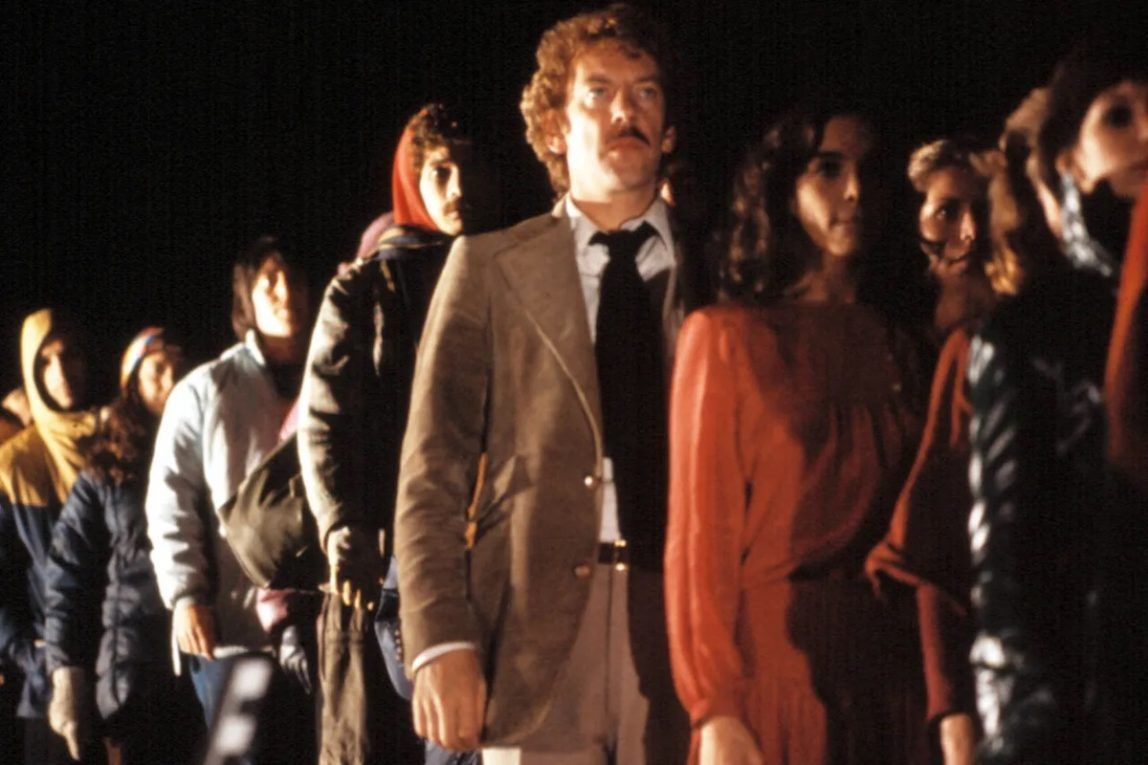
Photo: Everett Collection
Now immortalized on social media due to the memorable image of a shocked Sutherland looking straight into the camera, this remake of the 1956 cult film is a still-powerful horror film about human-like aliens hiding among us. “One night during filming, director Phil Kaufman asked me, ‘Do you know what this movie is about?’ … And then he just said, ‘McDonald’s,’” Sutherland recalled to Rolling Stone. “That’s why I basically did it in one go. It was that feeling that, at the end of the Seventies, everything was fatally homogenised.” As a public health inspector who finally realizes the threat he has found himself in the midst of, Sutherland personified the paranoia of an era when we didn’t have to worry about extraterrestrials: the Cold War and bourgeois conformity would have us well captured Before.
Common people
Robert Redford
1980
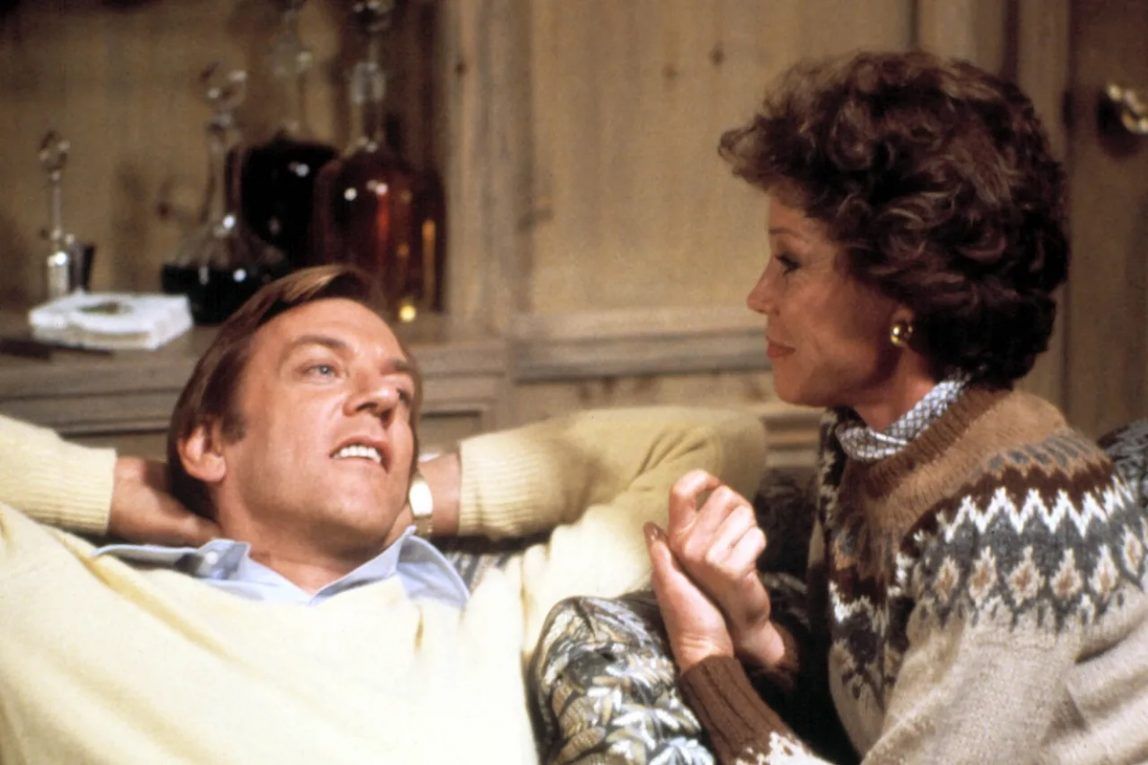
Photo: Paramount Pictures/Everett Collection
There are some extraordinary performances in this Oscar-winning film, but Sutherland is the only one who wasn’t nominated. His wonderfully discreet role is that of a grieving father who is always walking on eggshells after his son’s suicide: all he can do is try to act as (awkward) mediator between his enraged wife (Mary Tyler Moore) and his father. other son (Timothy Hutton), devastated by the loss. It’s a portrait of gentle masculinity and trying to be strong while you’re falling apart inside, which will surprise newcomers perhaps unprepared for Donald’s quiet power.
JFK – A case still open
Oliver Stone
1991

Photo: Warner Bros. Pictures/Everett Collection
It’s just a scene, but what a scene. As Mr. deep-state: the man who knows in which closets certain skeletons are buried and who has seen far too much. Director Oliver Stone initially considered Marlon Brando for the part, but later said, “I was lucky to get Sutherland because he’s an instant actor. And he was fantastic”. Thanks to John Williams’ nervous score, Sutherland’s seductive monologue pushes JFK into a completely different territory, of almost electric paranoia. Mister X barely appears in this three-hour film, but you never forget him even when he’s gone.
6 degrees of separation
Fred Schepisi
1993
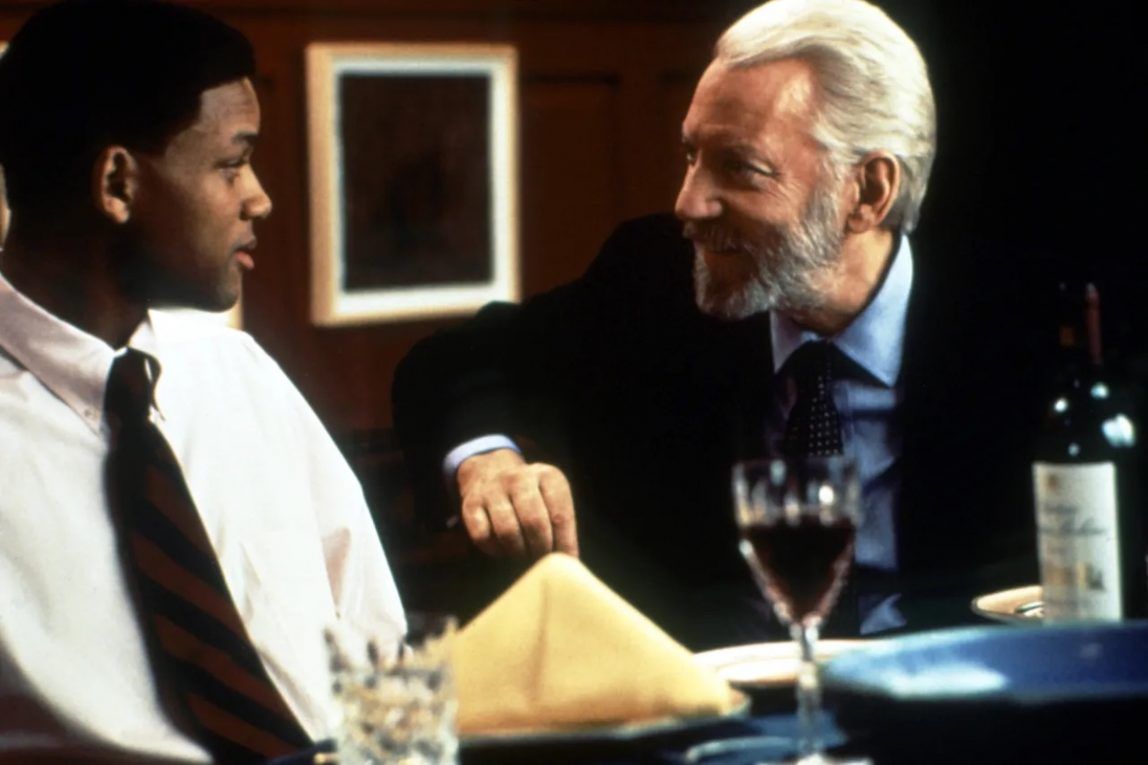
Photo: MGM
Director Fred Schepisi had a clear vision of how he saw Flan Kittredge, the elegant New York art dealer who would be played by Sutherland in the big-screen adaptation of John Guare’s play. “Fred said, ‘He’s like a used car salesman,’” recalled Sutherland, who amplified the character’s smarmy charm and faux grandeur, traits that make him the perfect target for the crafty con artist he gives the face Will Smith. There is real contempt in Sutherland’s portrayal, which condemns the kind of people who profit from the creativity of others while contributing very little to society itself (and becoming rich and complacent in the process). Long before more recent portraits of that 1% in Succession And Knives OutSutherland already had this type of culture-fixated parasite in his sights.
Hunger Games
Gary Ross
2012
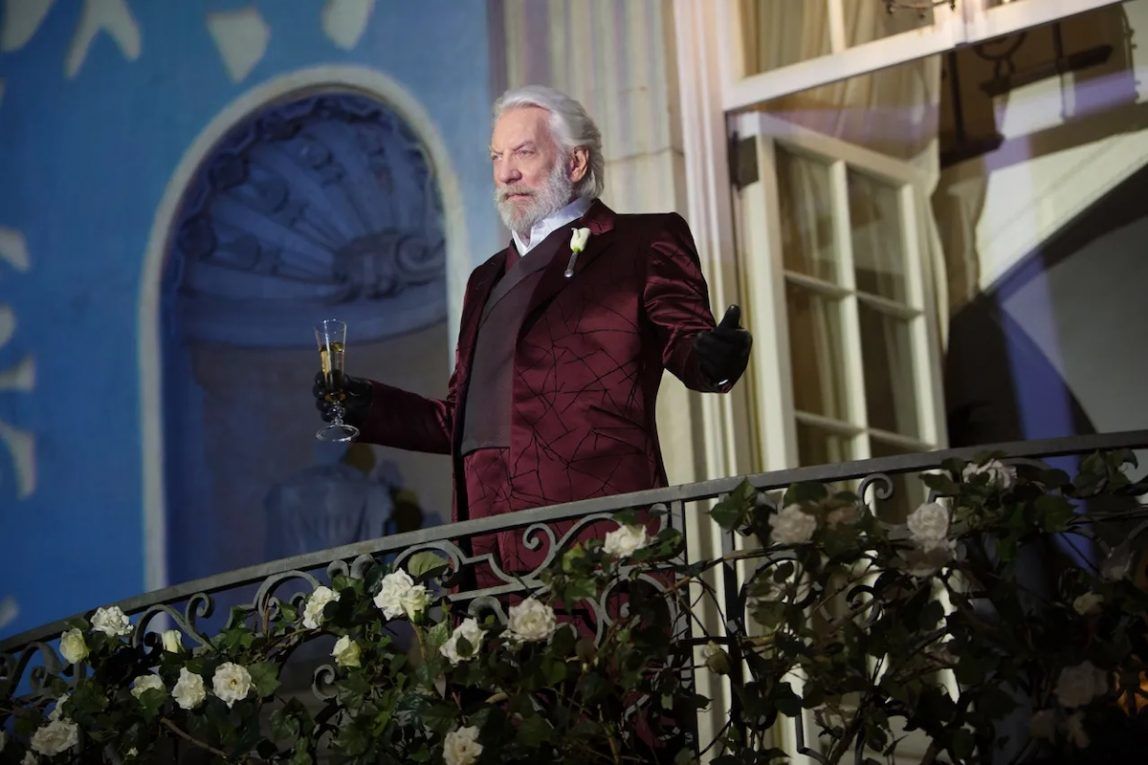
Photo: Murray Close/Lionsgate/Everett Collection
Late in life, Sutherland enjoyed what was arguably his greatest commercial success playing the evil President Coriolanus Snow, who rules Panem and oversees the Hunger Games with an amused detachment. Some of the film’s villains rant and rave, but Donald went in the opposite direction, embodying a man confident in his power and indifferent to the revolutionary rhetoric of Jennifer Lawrence’s Katniss Everdeen. Where other screen veterans would have lowered the bar in a special effects-heavy blockbuster, Sutherland radiated subtle menace, giving the franchise a hint of class, wit and gravitas. He was a professional, regardless of the role or the film.
From Rolling Stone US

